"Three Billboards Outside Ebbing, Missouri” is one of those truly rare films that feels both profound and grounded; inspirational without ever manipulatively trying to be so. Very few recent movies have made me laugh and cry in equal measure as much as this one. Very few films recently are this good."
Anger is an energy in Martin McDonagh’s brilliant “Three Billboards Outside Ebbing, Missouri,” one of the best films of the year. In this “Southern American with an Irish attitude” story from the "In Bruges" writer/director that, like a lot of his work, recalls Flannery O’Connor in tone (the O'Connor quote "The truth does not change according to our ability to stomach it" could be this movie's tagline), anger is not treated like something to be cured. Hollywood likes to teach us that anger is a sin, and that only through acceptance and understanding can we find true happiness. Easier said than done, right? How can you not be angry at an unfair world? Life will take children before parents. Life will give cancer to relatively young people. Life will be racist, sexist, and cruel. And you should throw a few back and yell at something that unfair. You should fight. It is only through that fighting and that rage that other emotions like empathy and understanding can surface. Anger is not a disease to be cured but a path on the road to comprehending the world.
No one does angry better than Frances McDormand, who does her best film work here since “Fargo” as Mildred Hayes, a recently divorced mother who lost her daughter Angela less than a year ago. Angela was raped and murdered, but the case has gone cold. There was no matching DNA, so the spotlight has dimmed and Mildred is getting no updates. She’s angry. She should be. One day, she sees three barren billboards on a rarely-traveled road, and she rents the space to ask the local chief of police, played by Woody Harrelson, why there are no answers. Local media becomes interested in the billboards, and the attention sparks a series of events involving not only the chief but one of his more loathsome officers, played by Sam Rockwell. Peter Dinklage, Caleb Landry Jones, Abbie Cornish, Lucas Hedges, Clarke Peters, and John Hawkes fill out a ridiculously perfect supporting cast.
You might think you have your finger on what this will be like from that description, but McDonagh’s simply perfect script is never quite what you expect it to be

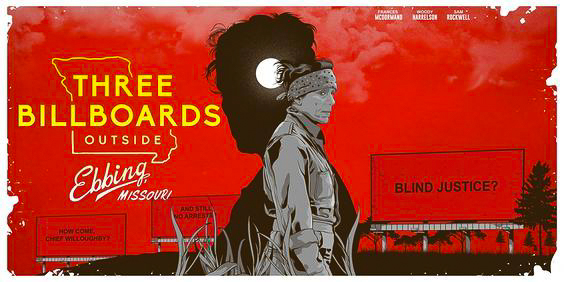




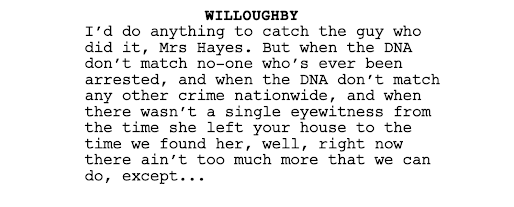
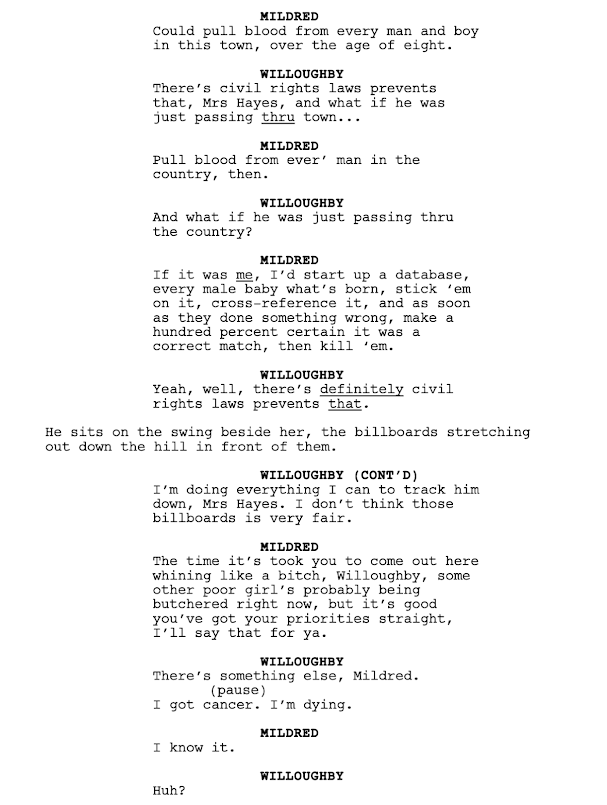
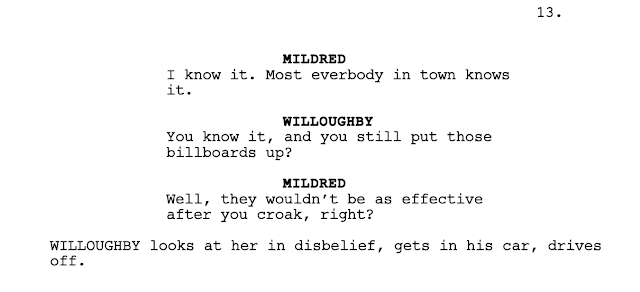

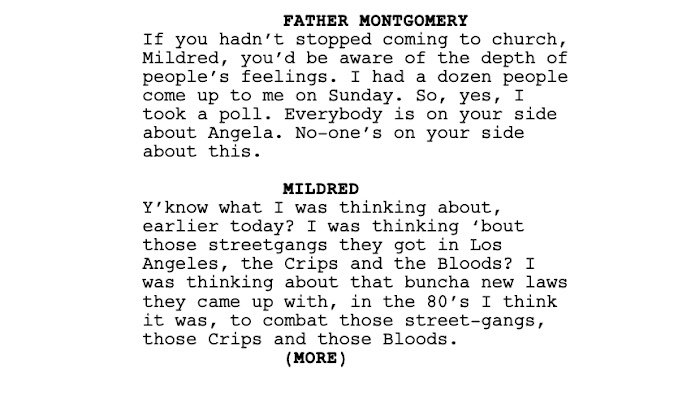
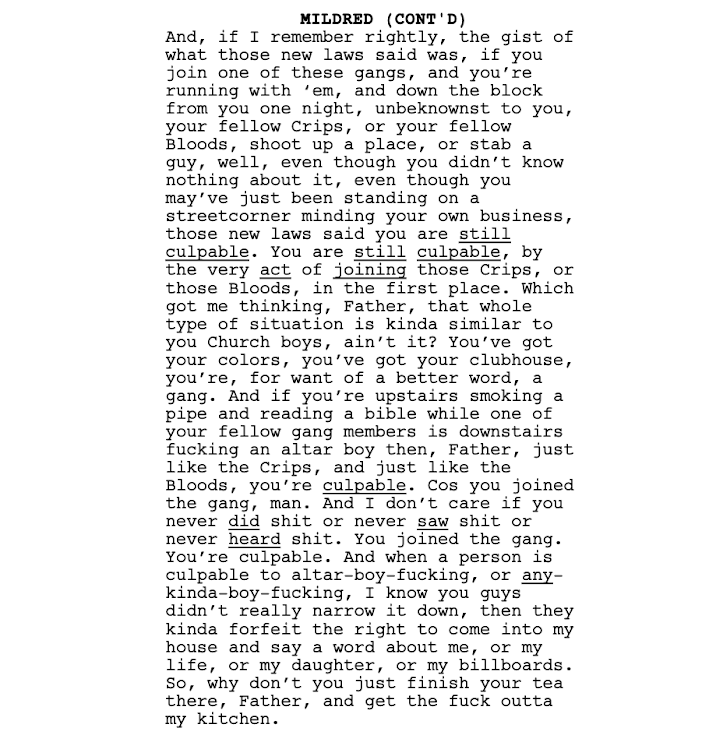

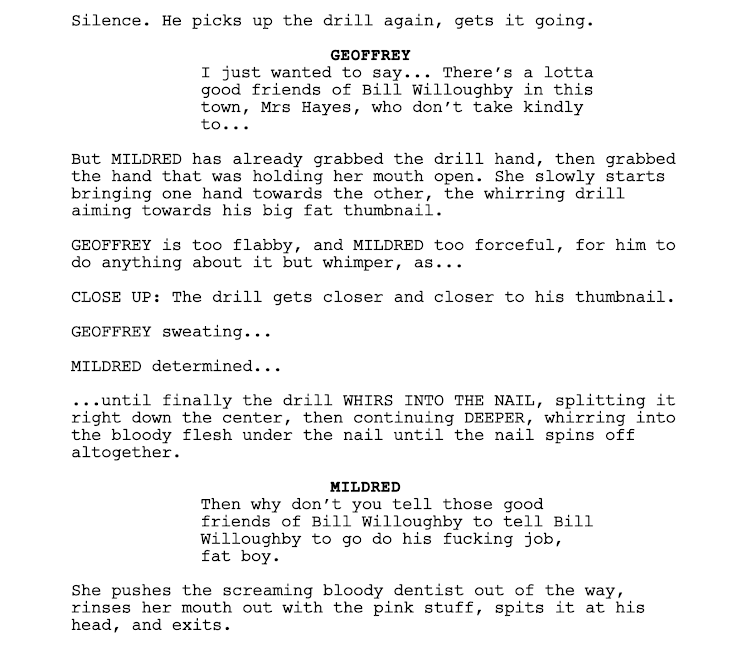

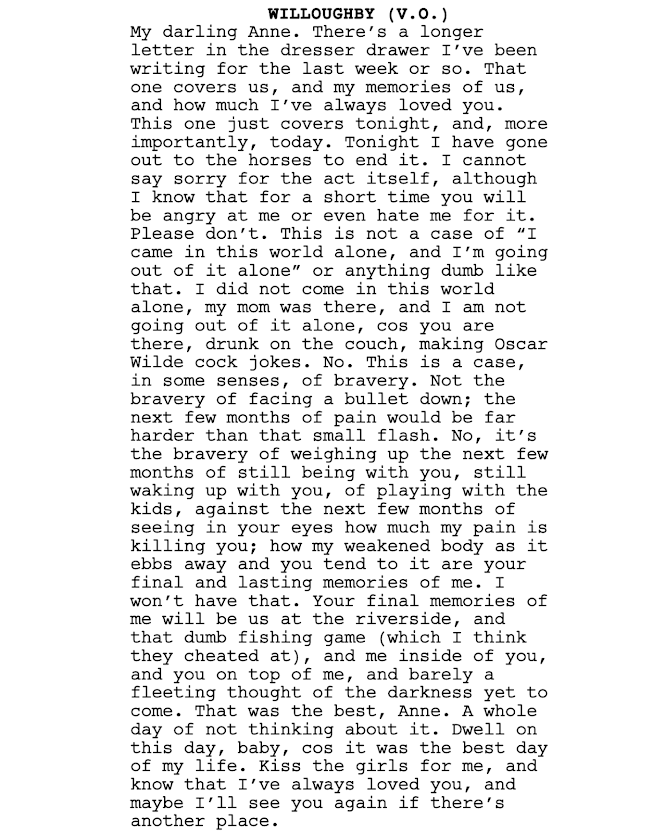


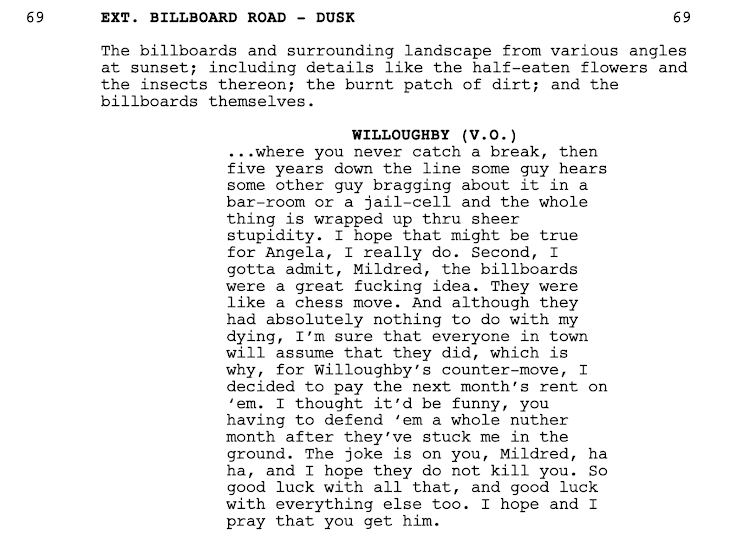



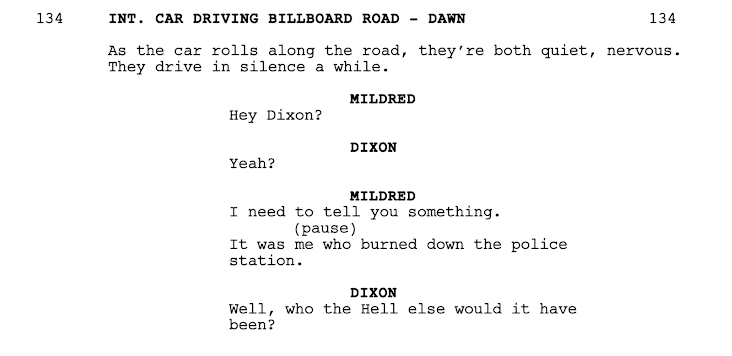
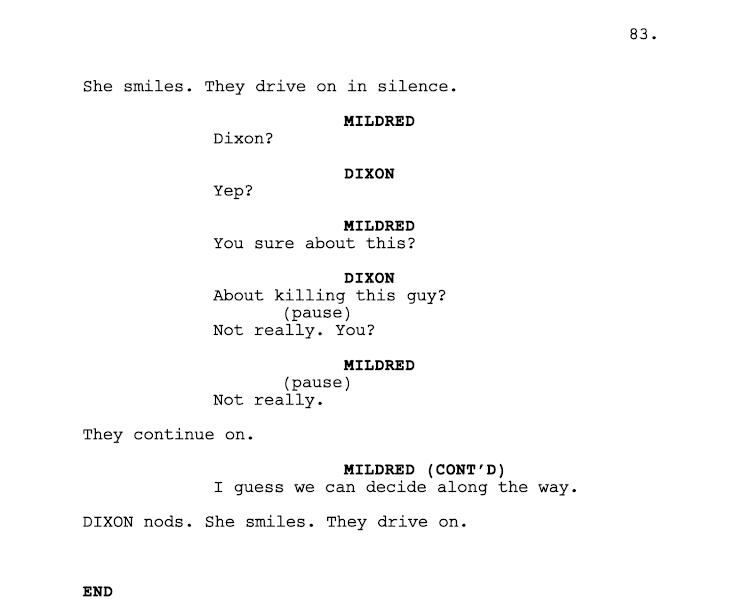





.jpg)